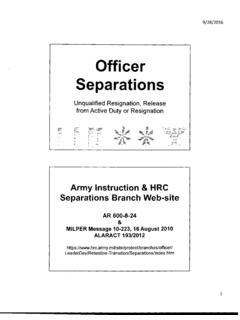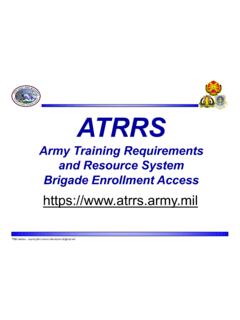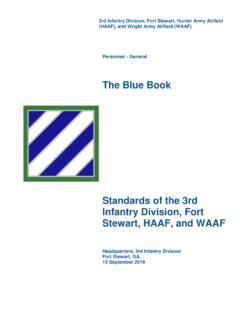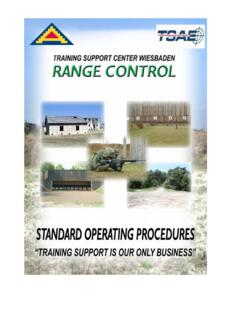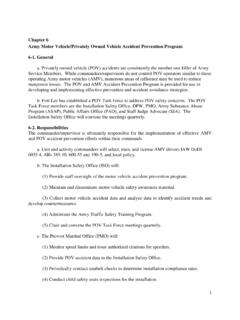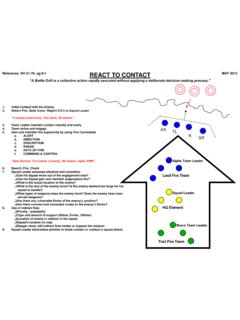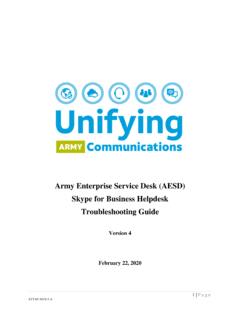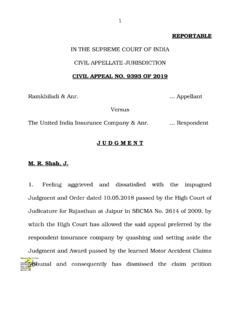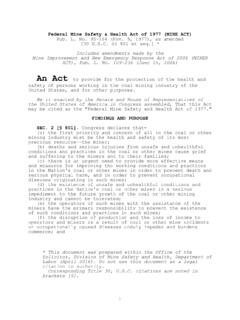Transcription of FINANCIAL LIABILITY INVESTIGATIONS OF PROPERTY LOSS …
1 Iefs legal Br From the Fort Knox legal Assistance Office FINANCIAL LIABILITY INVESTIGATIONS OF PROPERTY LOSS (FLIPL) Soldiers and Civilian Employees may be liable for lost, damaged, or destroyed PROPERTY : Soldiers and Department of the Army civilian employees may have to pay for Army PROPERTY they lose or damage. Under Army Regulation (AR) 735-5, FINANCIAL LIABILITY ordinarily will not exceed one month's base pay. In certain cases, however, such as the loss of personal arms or equipment, or damage to Government housing, LIABILITY may equal the full amount of the loss. The FINANCIAL LIABILITY Investigation of PROPERTY Loss is the administrative tool used by the Army to establish LIABILITY . Statement of Charges versus FINANCIAL LIABILITY Investigation of PROPERTY Loss: A FINANCIAL LIABILITY Investigation of PROPERTY Loss is not required in every situation where there is a loss or damage.
2 If the loss is less than one month's base pay, the command may ask the responsible individual to sign a DD Form 362, Statement of Charges/Cash Collection Voucher. This is essentially an admission of LIABILITY for the lost or damaged PROPERTY and an agreement to pay for it. The command cannot force or coerce someone to sign the statement; it must be voluntary. A FLIPL is used in situations where responsibility for the loss is in question, or where the amount to be charged is in dispute. Procedures - Submitting a Rebuttal: The FINANCIAL LIABILITY Investigation of PROPERTY Loss process starts when the appointing authority, usually a Lieutenant Colonel or above (most often a battalion or squadron commander), appoints a FINANCIAL LIABILITY officer (FLO) to investigate the facts surrounding the loss. The FLO will be a commissioned or warrant officer, a noncommissioned officer with the rank of sergeant first class or above or a civilian employee GS-7 or above.
3 The FLO must be senior in grade to the individual subject to potential LIABILITY unless war or military exigency requires otherwise. The FLO investigates and makes initial findings as to what happened. A copy of those initial findings is then given to the individual subject to potential LIABILITY . That individual has 7 days to prepare and submit a rebuttal back to the FLO. The person will have 15 days if the findings are mailed to him or her. Mailing may be appropriate if the FLO and the individual are not assigned to the same installation (perhaps the individual PCSed during the investigation process). The FLO will consider the rebuttal along with the findings, and make a recommendation about who should be held liable and in what amount. The recommendation is made to the appointing authority. The appointing authority reviews the FLIPL, reviews the action taken by the FLO, and either requests further investigation or concurs in the FLO s findings.
4 The appointing authority then forwards the FLIPL to the approving authority. The approving authority, usually a Colonel or above (most often a brigade or regiment commander or a division or installation chief of staff), approves or disapproves the FLO s recommendation. Before making his decision , the approving authority receives a legal opinion that the findings are legally sufficient and that the FLIPL was completed in accordance with AR 735-5. To assess LIABILITY , the approving authority must find 1) the person to be held liable had a duty/responsibility to take care of the PROPERTY ; 2) the person failed to carry-out that duty (negligence); and 3) the person's failure led to the loss (proximate cause). The approving authority will notify the person to be charged that FINANCIAL LIABILITY has been assessed. The notification will be in memorandum format and will inform the person they have the right to request reconsideration of (appeal) the approving authority's decision .
5 Appealing LIABILITY - Requesting Reconsideration: A person held liable has 30 days to request reconsideration of the approving authority decision to assess LIABILITY . The request goes back to the approving authority (the FINANCIAL LIABILITY officer and the appointing authority are not involved). If the approving authority decides to continue LIABILITY , he or she will forward the request to the appeal authority. The appeal authority, usually a general officer, is the next higher commander in the chain of command. The appeal authority will examine all of the facts and the recommendations again. The decision of the appeal authority is final. Waiver of LIABILITY - Government Vehicle Accidents: AR 735-5 authorizes the waiver of FINANCIAL LIABILITY for Government vehicle accidents caused by "simple negligence." The chain of command can use the process to document the loss and justify repairing the vehicle without actually having to take money from the soldier or civilian employee involved.
6 The waiver provision recognizes accidents happen, and that personnel should not have to lose pay for simple fender benders. Personnel should be sure to ask for the waiver in their rebuttal or request for reconsideration. Post-Investigation Options: Once the approving authority renders a decision , the person to be held liable still has several options to avoid losing pay. These options include the right to request remission or cancellation of the debt (enlisted personnel only), to request a hearing (civilian personnel only), to request an extension of the collection, or to petition the Army Board for the Correction of Military Records (ABCMR) to reverse the chain of command action. Before an FLO can recommend FINANCIAL LIABILITY to the appointing authority, he must determine you were both negligent (you acted unreasonably or improperly), and your action caused the loss or damage to PROPERTY .
7 What legal Assistance Can Do: legal Assistance Attorneys can help you prepare your rebuttal and request for reconsideration. Before an attorney can see you, you must have a copy of the FLIPL packet to leave with your attorney. Also, please bring with you a written draft of a rebuttal statement or request for reconsideration, preferably on disk. Be aware if the deadline for submitting your rebuttal or request for reconsideration. Your attorney needs 5-7 working days to adequately prepare your document. If this will put you beyond the due date to submit your rebuttal or request for reconsideration, you must get an extension from the FLO. If you have any questions concerning these matters, please call the legal Assistance Office for an appointment at (502) 624-2771 or visit our website at Our hours of operation are Monday, Tuesday, Wednesday and Friday, 0900 1600, and Thursdays 1300-1600.
8 The Fort Knox legal Assistance Office is located in Building 1310, Pike Hall at the corner of Knox and Third Street.

